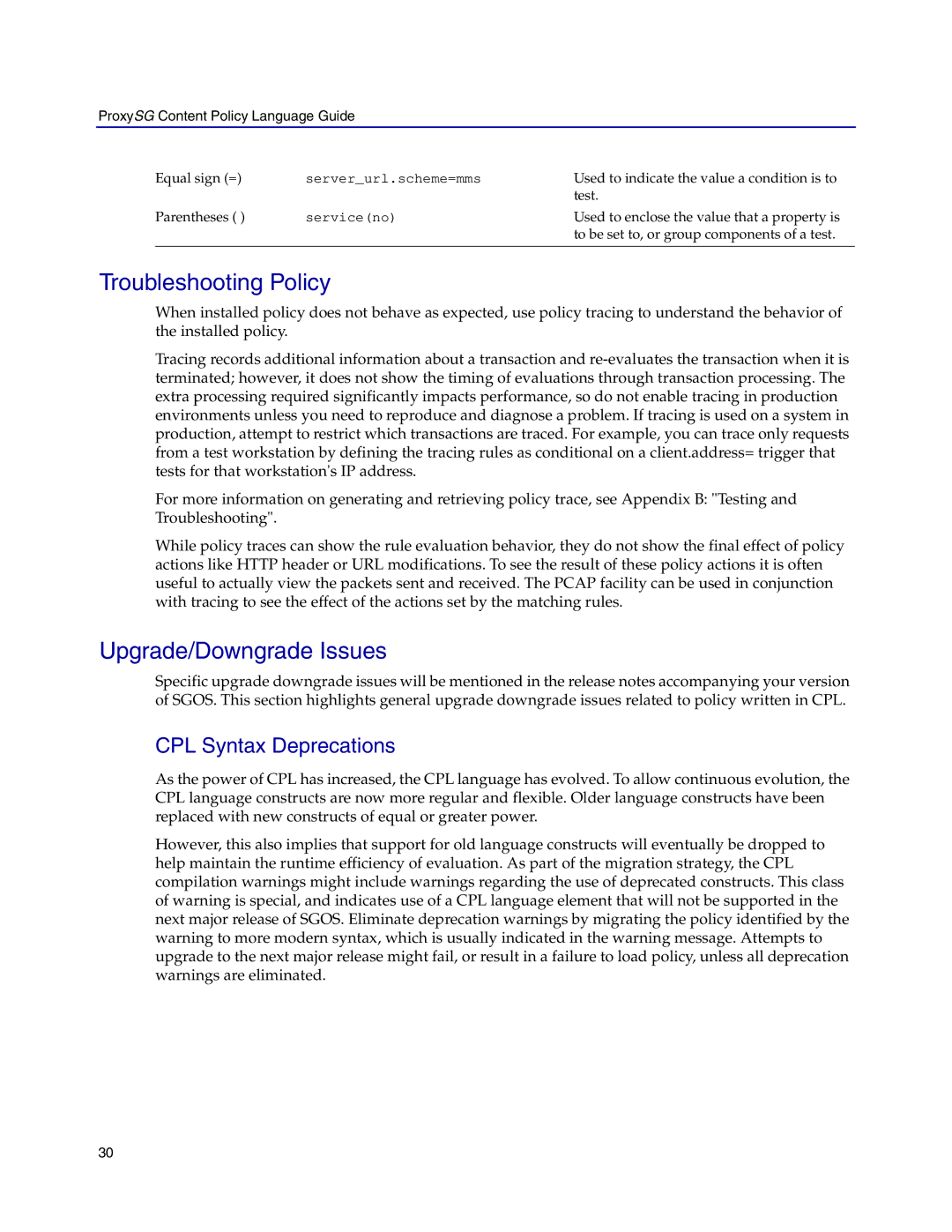ProxySG Content Policy Language Guide
Equal sign (=) | server_url.scheme=mms | Used to indicate the value a condition is to |
|
| test. |
Parentheses ( ) | service(no) | Used to enclose the value that a property is |
|
| to be set to, or group components of a test. |
Troubleshooting Policy
When installed policy does not behave as expected, use policy tracing to understand the behavior of the installed policy.
Tracing records additional information about a transaction and
For more information on generating and retrieving policy trace, see Appendix B: "Testing and Troubleshooting".
While policy traces can show the rule evaluation behavior, they do not show the final effect of policy actions like HTTP header or URL modifications. To see the result of these policy actions it is often useful to actually view the packets sent and received. The PCAP facility can be used in conjunction with tracing to see the effect of the actions set by the matching rules.
Upgrade/Downgrade Issues
Specific upgrade downgrade issues will be mentioned in the release notes accompanying your version of SGOS. This section highlights general upgrade downgrade issues related to policy written in CPL.
CPL Syntax Deprecations
As the power of CPL has increased, the CPL language has evolved. To allow continuous evolution, the CPL language constructs are now more regular and flexible. Older language constructs have been replaced with new constructs of equal or greater power.
However, this also implies that support for old language constructs will eventually be dropped to help maintain the runtime efficiency of evaluation. As part of the migration strategy, the CPL compilation warnings might include warnings regarding the use of deprecated constructs. This class of warning is special, and indicates use of a CPL language element that will not be supported in the next major release of SGOS. Eliminate deprecation warnings by migrating the policy identified by the warning to more modern syntax, which is usually indicated in the warning message. Attempts to upgrade to the next major release might fail, or result in a failure to load policy, unless all deprecation warnings are eliminated.
30
